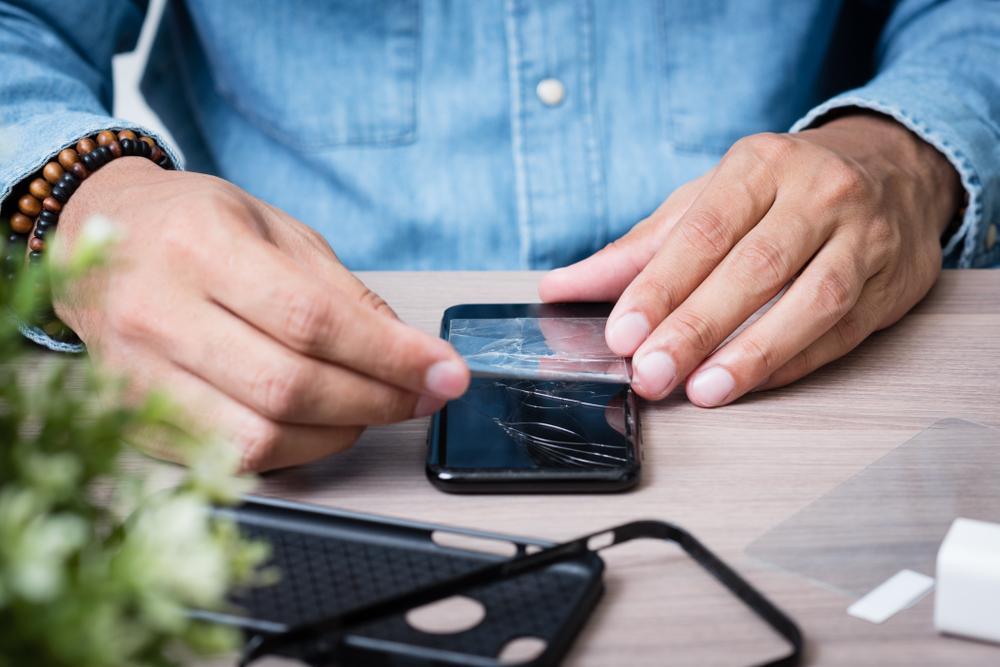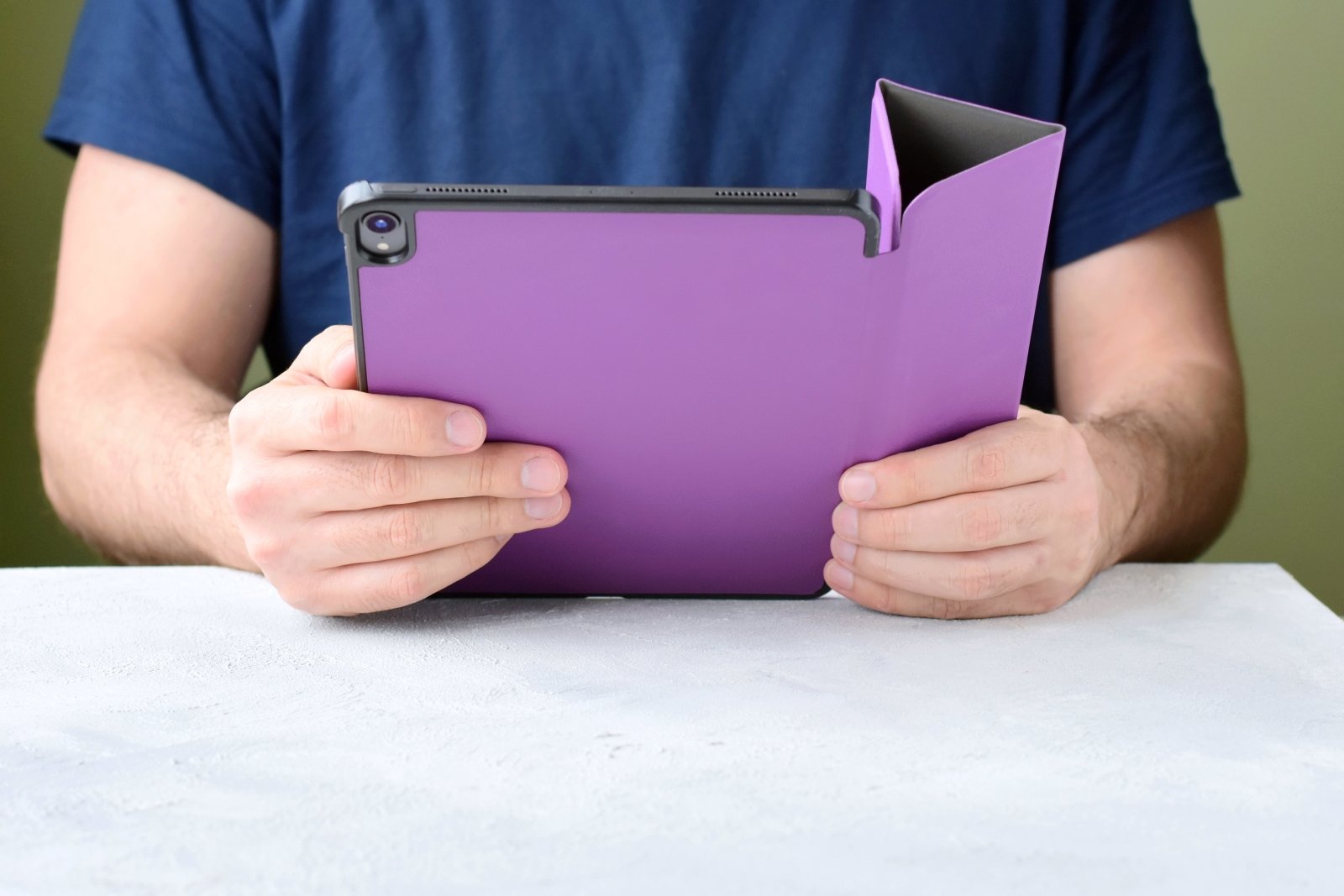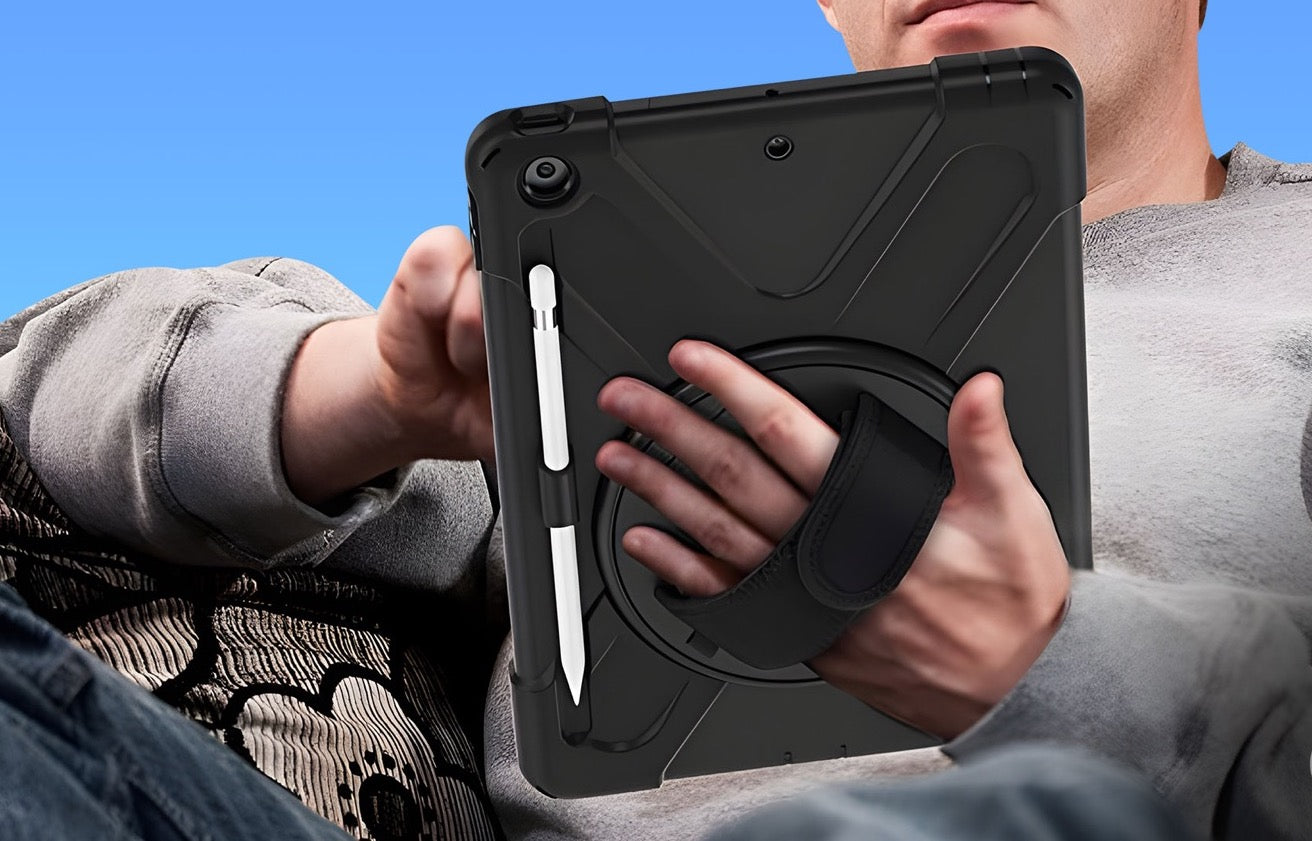
Do Screen Protectors Work? Here’s What to Look For
Keeping your smartphone in pristine condition is extremely important for its longevity. Our daily routine and busy working lives mean that accidents can happen at any moment, and we all know the consequences of dropping a phone.
The idea behind using a screen protector is to add a protective layer that helps shield your device from scratches, impacts, and drops, reducing the risk of a cracked display and the need for costly repair.
You may be in a crowd, and your phone gets knocked around in your pocket or purse, or it could fall out of your hand and land directly on the screen. It’s tough to know the answer to whether screen protectors work when you have never used one before, but once you buy one, it’ll last you years.
Unfortunately, even the strongest glass can crack, and scratches make it hard to read what’s on the screen. That’s why you might want to invest in a screen protector. However, you might ask yourself, “Are screen protectors worth it?”
Here’s what you need to look for to get the best protection for your phone.
Do Screen Protectors Work?
The modern smartphone will come with a toughened glass screen—perhaps the much-vaunted Gorilla glass—but even the strongest glass can be vulnerable to knocks, and will get damaged if dropped. Chips and scratches happen when you least expect them, so it’s best to buy a screen protector if you want to avoid damage.
A shattered screen is also a frequently reported problem, and you will need to have it professionally replaced. The Apple Store can replace a broken or cracked display using original parts, and manufacturers like Apple and others recommend professional repair. Replacing a screen can be costly, especially if you want it done properly and are not insured.
However, if you invest in a good screen protector, you can prevent your screen from getting cracked or broken. While a protector can help prevent your screen from getting damaged, it may break or get damaged itself and need replacing. Sometimes the protector broke, but the actual screen was saved from damage, making it much cheaper to simply replace the protector than the phone screen.
What should you look for when choosing a screen protector for your phone? Let’s have a closer look at how they work and what you should keep in mind.
How Screen Protectors Work
There are a number of different types of screen protectors—essentially, those that are plastic, and those that are glass—and it pays to do some research into each option before you buy. Tempered glass protectors are made from tough screen glass and are more resistant to scratches and impacts than plastic options. These glasses are designed to be transparent, so they maintain the clarity of your device's display. Tempered glass screen protectors should be 9h on the Moh scale of mineral hardness.
A scratch-resistant surface is important for everyday use, helping to keep your phone looking new. Tempered glass protectors protect your phone by absorbing impacts and preventing scratches, and a rolled or chamfered edge can improve durability and user experience. If your protector is damaged, applying a new screen protector can restore the look and protective qualities of your phone.
Before we delve into the details of how they function and what to look for, here’s one very important piece of advice: always buy one that’s specifically designed for your model of phone, as protectors are tailored for different devices and should be properly installed for maximum protection. There is no such thing as a generic, one-size-fits-all screen protector, so don’t be fooled.
Types of Screen Protectors
When it comes to protecting your phone screen, not all screen protectors are created equal. The market offers several types, each with its own set of advantages. The most popular choice among users is the tempered glass screen protector.
Tempered glass screen protectors are known for their impressive scratch resistance and impact resistance, making them ideal for anyone looking for better protection against drops and everyday wear. These glass screen protectors feel smooth to the touch and closely mimic the experience of using your phone’s actual screen, all while providing a tough shield against cracks and scratches.
Plastic screen protectors, on the other hand, are a more cost-effective option. While they offer basic scratch protection and can help prevent minor damage, they don’t provide the same level of impact resistance as tempered glass. Plastic screen protectors are lightweight and easy to install, but they can be more easily scratched and may need to be replaced more often.
Another option is thermoplastic polyurethane (TPU) screen protectors. These flexible protectors offer a balance between price and protection. TPU screen protectors are known for their self-healing properties, which help them recover from small scratches over time. They provide decent scratch resistance and can absorb minor impacts, making them a solid choice for the average user who wants a bit more flexibility.
When choosing a screen protector, consider the material, thickness, and features that best match your lifestyle and phone model. Whether you opt for a tempered glass screen protector, a plastic screen protector, or a TPU protector, the right choice will help keep your phone’s screen looking new and protected from life’s little accidents.
Why Use a Screen Protector?
Preventing Damage
The primary purpose of any screen protector is to prevent damage. However, it is worth knowing that some models do it better than others. For example, many new smartphones come with a flimsy screen protector that you apply to the front. This will not protect your screen from damage if knocked or dropped, it will simply prevent fingerprints on the actual glass.
You can get thicker plastic protectors that apply to the screen, and they are quite effective. You may also find some that have more than one layer. We can say with confidence, in most cases, the best option is to look for a glass screen protector. These are tougher, easier to fit—you can get them for full-screen fitting or they may fit the bezel—and although marginally more expensive, they will do the job.
Glass screen protectors are specifically designed to absorb impact by breaking themselves, which can prevent your phone's screen from breaking or ending up with a cracked display. While the protector may break or shatter during a drop, this breaking action helps protect the actual screen from more serious damage.
Shock Protection
It’s not just dropping a phone that can damage a screen. If you are involved in a job that requires you to be active, perhaps in construction or other heavy industry, shock can also damage a phone. Many shattered screens have come as a surprise, through a minor shock to the device. A plastic or tempered glass protector gives the screen added strength and will help keep it intact in arduous conditions.
Tempered glass protectors are specifically designed to absorb the impact from accidental drops and falls, making your phone more resistant to damage and helping protect the screen during unexpected impacts.
Privacy Protection
Some screen protectors are also designed to offer protection from prying eyes. This special kind of screen protector works by using technology that puts a film over the plastic or glass to prevent anyone from looking at your phone from either side of you. Using a privacy screen protector can help reduce the worry of others viewing your private information in public. Also, the film will help with the brightness of your phone's screen. This is perfect for those who are sensitive to bright lights.
Screen Clarity and Responsiveness
A great screen protector should do its job without getting in the way of your phone’s display or touch sensitivity. Screen clarity and responsiveness are key factors to keep in mind when shopping for protection. High-quality tempered glass screen protectors are designed to be virtually invisible, preserving the vibrant colors and sharpness of your phone screen. They also maintain the smooth, responsive feel you expect, so you won’t notice any lag or delay when swiping or tapping.
Some lower-quality screen protectors, especially those made from plastic or subpar materials, can reduce screen clarity, making your display look dull or hazy. They might also cause annoying bubbles or interfere with the phone’s touch response, leading to a frustrating user experience. To avoid these issues, look for screen protectors with features like oleophobic coatings, which help repel fingerprints and smudges, and anti-glare properties for better visibility in bright sunlight. Precise cutouts for sensors and cameras are also important to ensure your phone functions as intended.
The thickness of the screen protector can also play a role. While thicker protectors may offer more protection, they can sometimes affect touch sensitivity. The best tempered glass screen protectors strike a balance between durability and a natural feel, so you get both protection and performance. By choosing a high-quality screen protector, you can enjoy crystal-clear visuals and smooth, responsive touch—just like using your phone without any extra layer at all.
Are Screen Protectors Worth It? Yes.
So, do screen protectors work? The answer is simple, of course, they do. A screen protector can prolong the life of your phone in busy environments and save you from having to pay to get your screen replaced if damaged. To protect your entire phone, not just the screen, we recommend purchasing a phone case as well. Phone cases are an important complement to screen protectors, providing additional impact absorption and damage prevention.
Some users may find it slightly harder to use their fingers on the screen with certain protectors, as thicker or lower-quality options can affect touch sensitivity. However, high-quality screen protectors minimize this issue, ensuring your finger gestures remain smooth and responsive. When installing a protector, using clean fingers helps prevent fingerprint buildup and ensures a bubble-free application.
For the best screen protectors on the market, check out SaharaCase’s inventory of affordable, high-quality protection. SaharaCase has screen protectors and cases that fit phones, including iPhone, Samsung, LG, and more.


